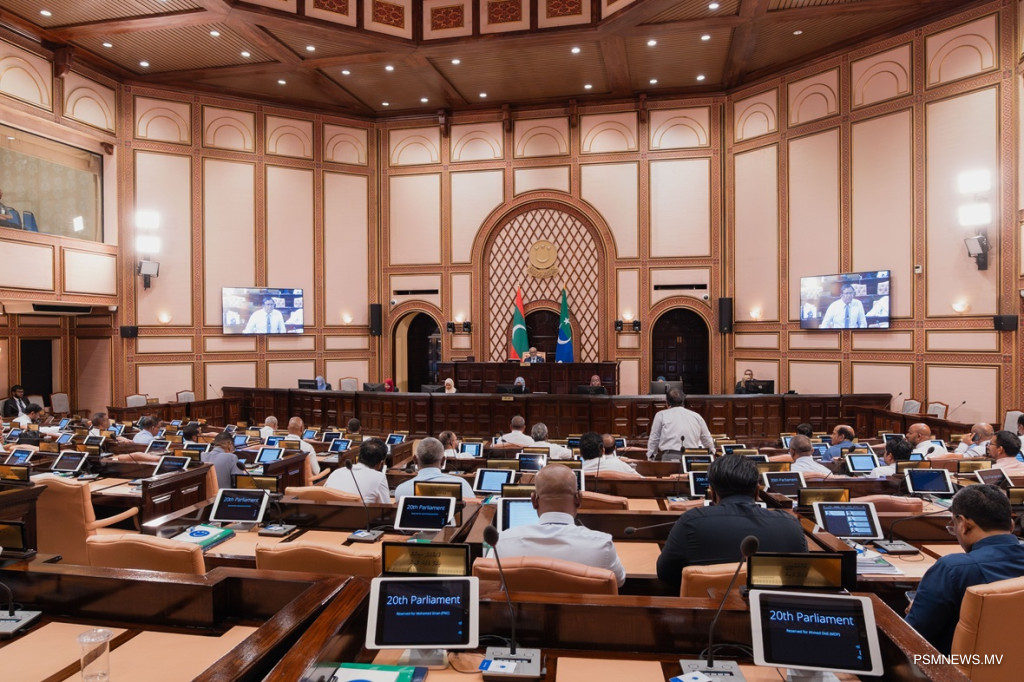
The Parliament’s Committee of the Whole House has approved amendments to the Special Economic Zone (SEZ) Act to establish separate areas for economic activities with major concessions to attract investors.
The legislative amendment, moved by Member of Parliament Ibrahim Shujau on behalf of the government, received its first reading during a parliament sitting on 29 October. This marks the first proposed amendment to the SEZ Act since its enactment in 2014.
During committee deliberations, a single amendment was proposed to Article 22(a) of Section 4 of the Bill, allowing a property transfer tax of 4 percent of the gross value of the sale of rights in relation to a villa or room in a zoned tourist resort or integrated tourist resort, specifically for long-term lease transactions on strata basis. The amendment was moved by Member of Parliament Ali Moosa, and seconded by Member of Parliament Mohamed Ismail.
The bill, incorporating the committee’s proposed amendments, was approved by a majority, with 55 members voting in favour of the amendments and nine against.
The core objective of the proposed amendment is to clearly define the terms and conditions for establishing these innovative zones, with a particular focus on designating them as ‘Sustainable Townships.’
The bill outlines a sustainable township as a large-scale real estate or integrated tourism development, managed centrally, that incorporates sustainable infrastructure and facilities to minimise environmental impact. Crucially, these areas must include on-site living facilities, services, and public utilities for residents.
To qualify for developing such a township, investors or developers must meet several stringent conditions. These include a minimum investment of USD 500 million, the establishment of an integrated tourism or large-scale real estate development encompassing a variety of luxury services and residential facilities, and the inclusion of either an international standard hospitality training centre or a healthcare facility.
Furthermore, these zones must achieve energy generation and waste management self-sufficiency, with at least 60 percent of their operational energy derived from renewable sources. The bill also mandates the establishment of sustainable agriculture or co-agriculture facilities to reduce food imports and boost local food production, alongside providing comprehensive amenities like housing, educational, health, and recreational facilities through sustainable infrastructure.
The bill proposes significant special incentives for developers of sustainable townships. These include a tiered income tax structure - a reduced rate of five percent for the first 10 years, followed by 10 percent for the subsequent 10 years (years 11 to 20), after which the rate prescribed by the Income Tax Act will apply. Additionally, investors will be exempt from paying import duty on capital goods brought in for the development of the zone.
The bill mandates that the regulations required for its implementation be formulated and published in the Government Gazette within six months of its enactment. The amendments themselves will come into force immediately upon their passage, ratification, and publication in the Government Gazette, signaling the government's intent to swiftly establish a framework for these ambitious development projects.
